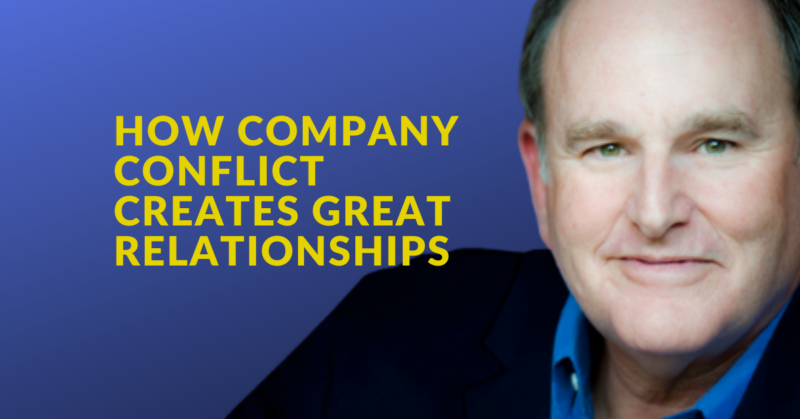How Company Conflict Creates Great Relationships
How Company Conflict Creates Great Relationships https://csuiteold.c-suitenetwork.com/advisors/wp-content/themes/csadvisore/images/empty/thumbnail.jpg 150 150 Steve Lishansky https://secure.gravatar.com/avatar/8fd287edd6becc1c349eb4a41459e3c7?s=96&d=mm&r=g
Conflict, which is a state of opposition between people or ideas or interests, can be one of the most effective processes for gaining agreement, alignment, and taking action that matters, as well as building great relationships. However, this only works if it’s done well.
So many people, teams, and organizations are conflict-averse for good reason: they don’t understand how to use conflict and handle conflict in a productive and constructive way. Yet done well, conflict is a means to get greater clarity, communication, coordination, and collaboration faster and more effectively.
Obstacles
Doing conflict well requires understanding and avoiding these obstacles that create conflict instead of clarity and communication:
- When a conflict exists between people, it is almost always an indication that we don’t understand the other person’s position well and/or they don’t understand ours.
- We have abandoned the search for understanding in the interest of advocating for our point of view.
- You are advocating your position when the other person doesn’t understand what you mean, which is frustrating and fruitless to both of you.
- When someone is not understood, that person often takes it personally, even though it is their responsibility to help the person they are communicating with understand what they mean.
- Being misunderstood tends to dig its own hole of frustration, which other people are often reluctant to jump into.
- When you abandon working to understand someone else’s point of view, it’s not surprising that they don’t care about yours.
Inherent in understanding these obstacles is the opportunity to avoid and even solve them, and to turn a situation of disagreement or conflict into deeper understanding, and even an improved relationship.
Key Principles
Here are key principles and perspectives for making conflict the opportunity for accelerating and elevating understanding, clarity, decision-making, alignment, and ultimately, effective collaboration and action:
- Recognize when there’s a misunderstanding or misalignment. Be sensitive enough to recognize when you don’t understand someone else’s point of view, and/or they don’t understand yours.
- Seek to understand them before you advocate for them to understand you. If you don’t know why they have the position or idea they have, ask them “what brings you to this point of view (or decision)?”
- Keep refining your understanding of why they believe what they do until both of you are clear about that. This will help you understand how they got to their point of view.
- Ask them if they’re open to another perspective before you start telling them your perspective. Getting permission to be heard provides far more certainty that you will be heard.
- Before you discuss what should be done or how it should be done, come to an understanding of each other’s reasons why your choice is what it is:
- Why always forms the most powerful context for how people are thinking about something, which you must understand.
- Helping them understand your ‘why’ is often critical for them to appreciate your point of view.
Taking Conflict Personally
The most challenging aspect in many conflicts is taking things personally. However, doing this is the fastest way to lose perspective, misunderstand the other person, and inflate your urgency to be heard (which then ‘pushes their buttons’ as well).
When you can calmly listen for what’s behind another person’s strong point of view, they will often have less intensity in trying to get their point across. The search for understanding, instead of fighting for your point of view and being right, changes the context and the emotions in a discussion. In fact, it’s possible to have an intense, yet highly constructive conversation when it’s separated from individuals needing to be right about their point of view.
The people and teams most capable of digging into deeper understanding, intensely discussing the ‘what and the why’ of the results they’re trying to accomplish, and demonstrating respect for other’s points of view, will ultimately be far more effective communicators, collaborators, and results-producers.
PS: The ability to transform arguments, disagreements, and conflict into constructive communication is critical for any executive team.
To learn more on how to optimize your decision-making process, schedule an intro call at OptimizeCalendar.com


